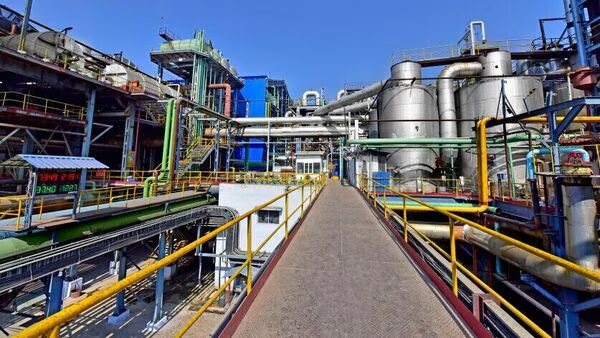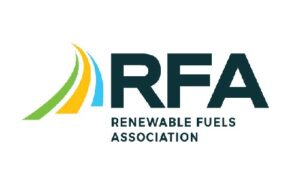Govt allows sugar mills to use existing stocks of B heavy molasses for ethanol production

India’s food ministry has approved converting 670,000 tonnes of B-heavy molasses into ethanol, aligning with ethanol-blending targets of E15 by 2023-24 and E20 by 2025-26. This move aims to boost sugar mills’ liquidity, expedite farmer payments, and address legal challenges, with ethanol production supporting 11.96% petrol blending. B-heavy molasses is set to produce 2.37 million tonnes of ethanol this year, while sugar production for 2023-24 is estimated at 31.8 million tonnes.
The food ministry has allowed sugar mills to convert their existing stocks of 670,000 tonnes of B-heavy molasses into ethanol, according to a senior official from the food ministry. The petroleum ministry has been asked to instruct oil retailers to lift ethanol to be used in the next cycle, the official added.
This decision underscores the government’s comfort with the current level of sugar production relative to domestic consumption needs, said the official who did not want to be identified.
The directive comes at a crucial time as it aligns with the end of the sugarcane crushing season and supports India’s ambitious ethanol-blending targets—E15 by 2023-24 and E20 by 2025-26. It also aims to expedite payments to sugarcane farmers, thus enhancing their financial stability.
As of March, India had achieved an ethanol blend of 11.96% with petrol.
Ethanol, a 99.9% pure alcohol, is added to fuel to reduce the nation’s dependence on imported crude oil. Ethanol in India is primarily produced from sugarcane-based molasses and grain-based sources. Among these, B-heavy molasses is a major contributor, accounting for 60% of ethanol production, followed by sugarcane juice at 20%, while C-heavy molasses has a minor role.
The stock of B-heavy molasses is expected to support the production of 2.37 million tonnes of ethanol in the current supply year, which started in November.
Concurrently, sugar production for the 2023-24 season is projected to be slightly higher than initially estimated, at 31.8 million tonnes, despite being lower than the previous year’s 32.9 million tonnes. The monthly domestic sugar consumption currently ranges between 2.2 and 2.3 million tonnes.
Industry demands
This move is also significant due to the legal challenges it addresses, as over thirty court cases had been filed in Karnataka and Maharashtra by sugar mills regarding the previous restrictions on molasses use.
The mills had accumulated B-heavy molasses in anticipation of producing ethanol before the government’s temporary ban on December 7 last year. The ban was lifted a week later, allowing the use of cane juice and B-heavy molasses within an overall cap of diverting 1.7 million tonnes of sugar for ethanol production for the 2023-24 supply year.
Sugar mills were stuck with stocks of B-heavy molasses that they could not use for sugar production, hoping to convert it into ethanol in the future, the official cited above elaborated. The complexities of processing B-heavy molasses stored in tankers into sugar make it a costly and challenging endeavour.
“Additionally, liquidity of sugar mills will also improve to make quicker payments to farmers. When payments are timely, farmers know that there is no problem. Mills have already produced sugar and every month we instruct them how much to sell. The quantity they sell, they get money accordingly. As they lean on ethanol, the cash flow will accordingly (adjust),” the official said.
The payment process for the current season is ongoing, but with increased liquidity, sugar mills can expedite payments. “I believe 85% of the payment for the current season has already been made, as mills are obligated to settle payments within two weeks,” the official added.
Queries sent to the petroleum and food & public distribution ministries remained unanswered at press time
Meanwhile, Uppal Shah, co-founder and CEO of online sugar trading platform ChiniMandi, said, “This (decision) will boost the financials of the sugar mills as they will be able to unlock the value of the B Heavy Molasses stock with them and generate additional revenue from it. This will also charge up the sluggish pace of the ethanol blending programme in the ongoing ESY. Additional ethanol from B Heavy Molasses will improve the blending percentage in the country to pull it towards the 15% target.”
Shah, however, cautioned that these measures should be seen as short-term solutions. “The sugar industry should pursue a more stable and long-term policy for sustainability and growth. This will give confidence to the industry stakeholders to stay put and invested.”
















